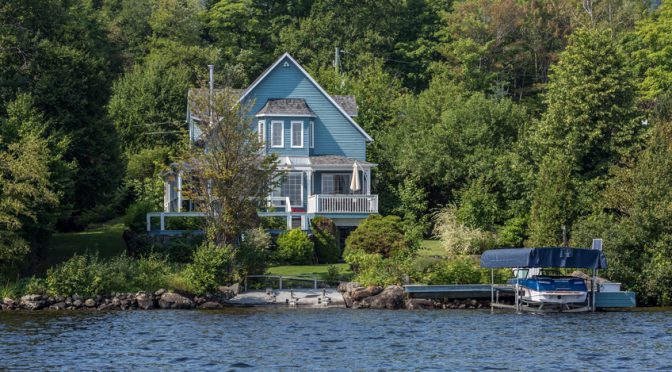You’ve decided to buy your very first home in 2017. You’re about to start looking for houses on the market. Let’s review your decision to ensure that you’re in fact ready for this step.[……]
Tag Archives: expenses
Is buying a vacation property right for me?
6 questions to ask before making a move.
As the weather warms up, a cottage by the lake may sound appealing ― but is owning a second home right for you? If you’re looking to purchase a place, prices will vary greatly depending on where you’re searching.
There are several important factors to consider before purchasing a vacation home, so don’t let the allure of a lake breeze or the excitement of water sports keep you from thinking it through. First, ask yourself these six questions:[……]
ADVICE FROM DESJARDINS
Relocating for work or school? If you are moving to start a new job, run a business or study full-time at a post-secondary level, you may be eligible to deduct some of your moving expenses from your income taxes.
Eligibility rules are the same for both the Canada Revenue Agency and Revenu Québec. If you want to deduct moving expenses, your new home must put you at least 40 km closer to your workplace or school.
Expenses you can deduct:
- moving company fees
- rental fees for a truck or trailer
- storage costs for your household belongings
- food and lodging expenses for you and your family during the trip to your new home
- the cost of selling your old home or cancelling your lease
- the cost of upkeep for your old home if it remains vacant for a time despite reasonable efforts to sell (maximum $5,000)
[……]
Retiring and want to relocate?
Consider these 3 pros and cons.
While nearly half of Canadian homeowners don’t plan to sell their homes when they retire, many are still unsure what they’ll do. Moving to a new city or downsizing to a more compact home can offer advantages but, depending on your goals, a few disadvantages as well. If you’re thinking about a post-retirement move, consider these pros and cons before you start packing:
When you relocate to a new city or property…
- PRO: Save money on daily expenses: If you relocate to a less expensive area, you’ll be able to stretch your retirement savings further. Consider the benefits of a suburb vs. city, and look to exotic areas that provide a lower cost of living. Need a little inspiration? Mexico, Panama, and Costa Rica are popular post-retirement spots for Canadians. Or, look to Buenos Aires, Argentina, where you can rent a one-bedroom apartment (in a good area!) for as little as $400 a month.
- CON: Spend money on moving costs: Even if you’re exchanging your current digs for a less expensive property, moving isn’t cheap — real estate agent expenses, land transfer tax and moving costs can dissolve a big chunk of money. In Toronto, for example, land transfer costs, legal fees and moving expenses alone could be $15,000 or more. Plus, you’ll have to consider the cost of traveling to visit family, but if you pick a tropical locale, Canadian relatives may be more likely to come to you.
[……]
Start preparing a safety net for unexpected expenses.
Life happens.
Your washing machine breaks. You have a leaky roof. You lose your job. Your child gets sick.
No matter how well you plan, you simply can’t predict if and when unexpected expenses are going to arise — and inevitably they will. Your pay cheque may only go so far towards covering costs, and you’ll want to avoid going into debt or dipping into your retirement or long-term savings.
So what can you do to prepare?
Start saving now.
Open a separate savings account for emergencies, and get into the habit of depositing a weekly or monthly amount, even if it’s just $10 or $15. That may mean one less meal out, but it will add up over time. A great way to get started is to set up automatic savings. Once you’re in the habit of automatically setting money aside each month and adjusting your spending habits, you can gradually increase the amount.[……]
You’re thinking of buying your perfect home? You’re prepared for the down payment as well as the loan and tax instalments and insurance. You’re sure you’ve thought of everything. But have you really anticipated everything?
Buying a home is not only a matter of making loan payments! It’s important to anticipate other expenses. And since these expenses can impact the amount you put down, you need to keep them in mind during the buying process. These expenses* can include:
- Appraisal fee ($350)
- Welcome tax ($2,000)
- School taxes ($500)
- Home inspection fee ($150)
- Municipal taxes ($2,000)
- Moving cost ($1,000)
- Home insurance ($400)
- Lawyer (notary) fees ($1,000)
- Loan insurance ($1,600)
[……]
 iStockphoto[/caption]
iStockphoto[/caption]
It seems so easy at first glance! We are preparing to complete our tax return when the accountant suddenly brings us back to earth. “Careful, you’re not really a co-owner in the legal sense of the term.” What? “Another thing, about the old building you purchased, the cost of renovations may be a capital expenditure.” What? “Before I forget, did you know that the money you spent to advertise your space for rent is generally considered a tax-deductible expense?” What?
The temptation is strong to just give the accountant all your papers: “Here, take care of it. It’s too complicated for me!” and wash your hands of it. Then doubt sets in as you lay on your pillow that night. No, you tell yourself, I have responsibilities as an owner, and I will assume them. It’s my duty to understand a minimum of what there is to understand.[……]




